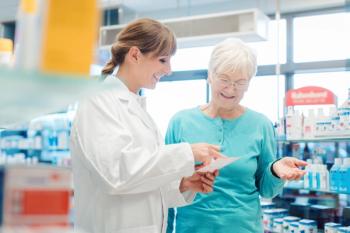
Hurricane Katrina: Clinical lessons learned
There are a lot of lessons to be learned in the aftermath of Hurricane Katrina. Pharmacists who weathered the experience shared with Drug Topics their take on what went right and what went wrong, so that in the future, risks to patient safety could hopefully be kept to a minimum.
There are a lot of lessons to be learned in the aftermath of Hurricane Katrina. Pharmacists who weathered the experience shared with Drug Topics their take on what went right and what went wrong, so that in the future, risks to patient safety could hopefully be kept to a minimum.
According to these pharmacists, they had initially worked off of a pre-Katrina set of guidelines for how to deal with catastrophes. And while these disaster plans were pretty good, no one was prepared for the degree of devastation that Katrina brought.
Based on what they went through, pharmacists said that some of the old disaster preparedness protocols should be set aside and in their place there should be a new set of standards created, leveraging the clinical lessons they have learned.
One lesson health professionals there learned is they need to have a better plan to take care of dialysis patients.
When the clinic rapidly ran out of water, the situation grew gravely critical for those patients. "We were using well water. That's fine for washing hands or taking a bath, but you can't dialyze a patient with well water," said Rick Hartenstein, Pharm.D., director of pharmacy at Ochsner. The possibility of contamination was too great and dialysis patients had to be transferred fast, Hartenstein told Drug Topics "I'm not sure what we'll do next time, but that was a problem we ran into and couldn't solve."
The loss of power became a major problem early on and created a clinical challenge for the pharmacy staff. "When one of our generators went down, I lost some of my emergency power in the pharmacy. So my IV hoods weren't connected to the one remaining generator," Hartenstein explained.
In order to solve the problem, he had to take an IV hood into an operating suite to do sterile compounding. "For pediatric TPNs, I couldn't consider doing them in a nonsterile environment."
At Methodist Hospital in East New Orleans-one of the hardest-hit areas of the city-director of pharmacy Paulette Bickham, R.Ph., MBA, discovered that loss of power has many side effects. For instance, patients receiving their medications by means of IV infusion pumps were sustained on backup generators.
There were not, however, enough generators to go around, and eventually the pharmacy staff had to change some patients' route of administration to oral administration.
"We covered a lot of ground in the dark with a flashlight, going through and trying to make sure that everybody was taken care of," Bickham said. She went on to explain that she, three other pharmacists, and two pharmacy technicians worked with no electricity or elevators for the first 12 hours. "We would go up six flights of stairs every hour to check on patients."
Bickham is an employee of McKesson Medication Management, a division of McKesson Corp., which provides pharmacy management services to acute care hospitals and health systems.
One major change that needs to be made, Hartenstein pointed out, is to have a more stable backup power source so that health professionals can continue engaging in sterile compounding and keeping IV pumps running when the power is out.
"Our people weren't sure which generator the emergency power was coming from until the generators went down. We need to work with facilities people. Those are the kinds of contingencies we didn't plan on," he explained.
When it comes to future planning, Bickham concluded, the bottom line is to have a "more extensive and more comprehensive preparedness strategy in place.
"The question that needs to be answered," she said, "is what will it take to get through this?
Newsletter
Pharmacy practice is always changing. Stay ahead of the curve with the Drug Topics newsletter and get the latest drug information, industry trends, and patient care tips.























